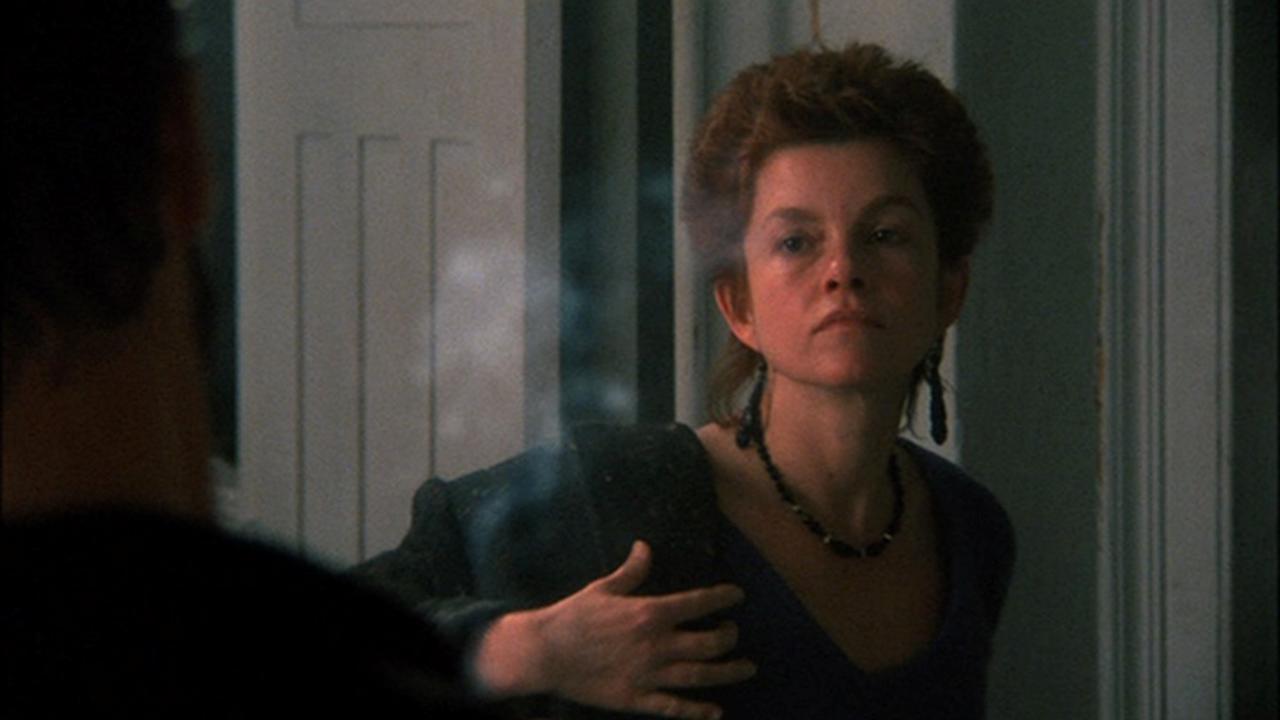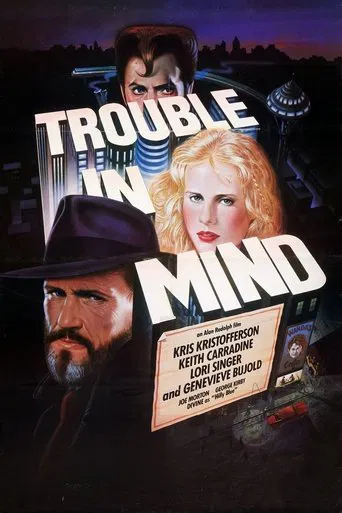Lancoor
A very feeble attempt at affirmatie action
Matrixiole
Simple and well acted, it has tension enough to knot the stomach.
Claire Dunne
One of the worst ways to make a cult movie is to set out to make a cult movie.
Sanjeev Waters
A movie that not only functions as a solid scarefest but a razor-sharp satire.
Predrag
This movie captures the neon world of the late seventies new-wave/punk era near-perfectly and is unique in the fact that it is the only movie to do so! The acting, specifically Carradine, Bujold and Morton, is top-notch, the music, by Mark Isham, is moody, jazzy and noir-perfect and humor abounds throughout. The story is cartoonish, but that is part of its charm.The interesting cast does a fine job. Lori Singer as Georgia is the right blend of beauty, innocence, and vulnerability which nicely contrasts with Wanda's tough (but, yes, good-hearted) exterior. John Considine as the completely corrupt lawyer Nate is fine also, and the other supporting cast chips in as well. The story centers around Kris Kristofferson, starring in one of his few really good movies, as a disgraced cop who gets paroled back into Seattle society after serving time for murdering a crime lord for harassing an old flame of his, Wanda, played by Genevieve Bujold, whom he reunites with after he gets out. Wanda owns a popular diner haunted by weirdos and hangers-on over which Kristofferson takes an apartment she offers to him out of gratitude. Into this mix comes Coop, played by Keith Carradine, a young married with the requisite financial problems all working class young marrieds face: New baby, new expenses, a wife to support.... A great 80s American film meant to spotlight the mix of innocence and sleaze that's America at its core, "Trouble in Mind" delivers the goods.Overall rating: 8 out of 10.
Michael Neumann
It's hard to decipher the motivation behind this attractive but often labored retro-noir potboiler, which in appearance (and appearances are all the film has to offer) falls uncomfortably somewhere in between an homage to and a satire of classic 1940s crime dramas. The characters are all familiar from other Alan Rudolph daydreams: the laconic lone-wolf hero (Kris Kristofferson, as a low-life ex cop); the tough-but-sensible cookie with a kind streak (coffee waitress Geneviève Bujold); and Rudolph regular Keith Carradine as the innocent bystander, chasing success into the gutters of Rain City (a.k.a. Seattle). But the dialogue, mood, and the story itself are self-consciously artificial, owing more to mid 1980s music-video hyperbole than to any Golden Age Hollywood film style, and the plot doesn't so much develop as congeal. Highlights include Carradine's scene-by-scene metamorphosis into something resembling Ziggy Stardust, and a brief but startling moment when a villain is drowned in a parked car filled with water.
Raegan Butcher
This is a great piece of atmospheric mid-budget film-making. Alan Rudolph and his production team successfully utilize the architecture of Seattle and its rain-slicked streets to bring to life the funky Neo-noir metropolis known as Rain City, inhabited by a set of off-beat characters, my favorite of which is a gangster played by the one and only DIVINE, in his only male-gendered role. He even gets to say the films best line: "Everyone wants to go to Heaven but no one wants to die!"This is a film that is just begging for a DVD release. As others have mentioned, the audience for this film is definitely out there.
cmndrnineveh
This film is perhaps the ONLY film to "document" what life was probably like for the vast majority of young people in working class America in the late seventies and early eighties, when a true sense of bizarreness reigned in big cities all across the country. This was the world that David Bowie, Kiss, disco and cocaine had made for everyone who had to "get out of the house at night". It was also a statement about how rough life was for anybody trying to make their way in the world during that period, where inflation was rampant and jobs were VERY difficult to come by.This situation leads one of the characters, Koop, played by Keith Carradine, to join forces with a paranoid but educated and shady black guy by the name of Solo in a diner owned by Genevieve Bujold's character, Wanda. Also frequenting the diner, which he also lives over, is ex-cop Hawk, newly released from prison, played by Kris Kristofferson. The two clash, as Koop descends into a life of crime with Solo, trying to feed his wife and baby while Hawk develops an eye for his young wife, played by Lori Singer.The mood of this movie has many parts: equal parts weird, compassionate, exposition, self-consciously fashionable, and stylish. It captures the zeitgeist of the period between 1975 and 1982 perfectly...the desperation of young people, especially POOR young people, to get a taste of the glitzy good life and to simply survive in a world that it is too easy to realize really IS cold and cruel! Alan Rudolph's art director should have won an Oscar for his work on this film, as it captures the presumed time it was set in perfectly. Rudolph himself deserves kudos too, for giving the world a chronicle of the weird world of new wave-disco era, big city America. Bujold, Carradine, Morton, Singer and even Kristofferson are good in it as well.This is the middle one of three great movies Rudolph produced in the mid-to-late eighties that he and his repertoire company, (usually just Bujold and Carradine,) can be justifiably proud. These are "Choose Me", "The Moderns" and this one. "The Moderns" must be seen to be believed. As good as the mood setting is in "TiM", "The Moderns" walks all over it.Enjoy.

